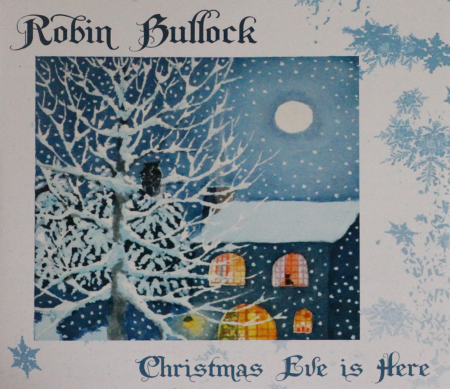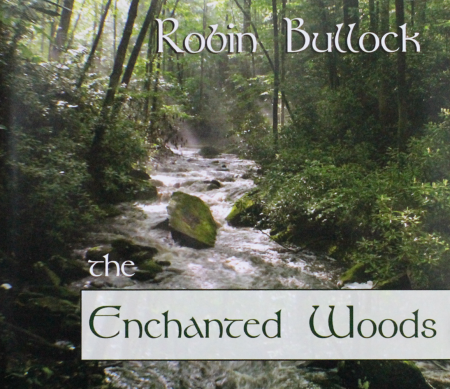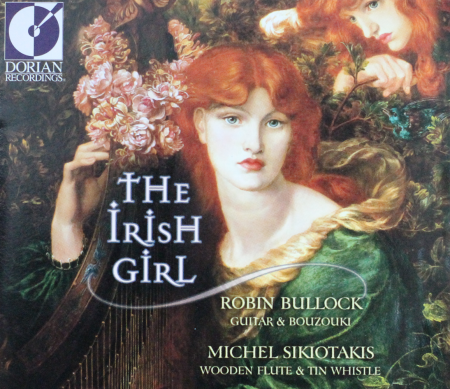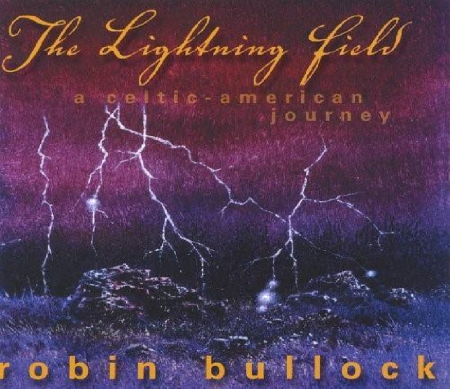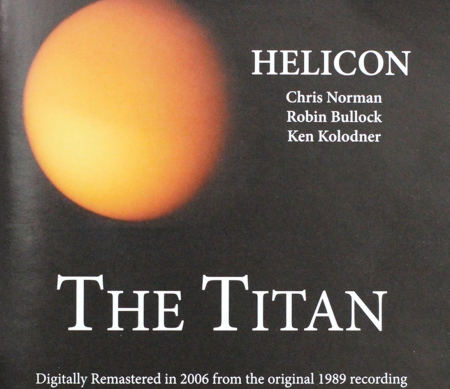Description
1. Tomorrow Shall Be My Dancing Day
2. O Come All Ye Faithful / Angels We Have Heard on High
3. Away in a Manger
4. While Shepherds Watched Their Flocks by Night / Once in Royal David’s City
5. It Came Upon a Midnight Clear
6. Il est né, le divin enfant
7. The First Noël / Good King Wenceslas
8. In dir ist Freude
9. Christmas Eve is Here / Ding Dong Merrily on High
10. Gower Wassail / The Boys of Ballisodare
11. ‘Tis Winter Now / Infant Holy, Infant Lowly
12. Break Forth O Beauteous Heavenly Light
13. O Holy Night (Cantique de Noël)
14. Silent Night
15. In the Bleak Midwinter
16. We Wish You a Merry Christmas
Liner Notes
All instruments played by Robin Bullock
1. Tomorrow Shall Be My Dancing Day
Two citterns, 12-string guitar, bass guitar
A traditional Cornish carol first published by folklorist William Sandys in Christmas Carols Ancient and Modern (1833). The lyrics tell the story of Jesus’s life in a mystical manner somewhat reminiscent of the Song of Solomon: “Tomorrow shall be my dancing day, / I would my true love did so chance / To see the legend of my play, / To call my true love to my dance. / Sing O my love, / O my love, my love, my love, / This have I done for my true love.”
2. O Come All Ye Faithful / Angels We Have Heard on High Two guitars
Two of my favorites from the popular carol repertoire, both of which lend themselves especially nicely to the guitar. It’s most likely that John Francis Wade wrote both the music and the original Latin lyrics to “Adeste Fideles” sometime in the mid-1700s, according to Dom John Stephan’s amazingly researched study of the hymn’s history. The English translation “O Come All Ye Faithful” is by Frederick Oakeley, 1841. “Angels We Have Heard on High” is both musically and lyrically a French carol, “Les Anges dans nos compagnes.”
3. Away in a Manger
Guitar, 12-string guitar
Because “Away in a Manger” first appeared in a Lutheran songbook with the subtitle “Luther’s Cradle Hymn,” it’s sometimes mistakenly attributed to Martin Luther himself. In fact, the melody I play here, one of several commonly used for the hymn, was composed in 1887 by American music publisher James Ramsey Murray. (Nobody seems to know who wrote the lyrics, but it definitely wasn’t Martin Luther.)
4. While Shepherds Watched Their Flocks by Night / Once in Royal David’s City Solo guitar
The first of these melodies is attributed to Beethoven’s favorite composer, the great George Frideric Handel. The second is an English hymn composed in 1849 by Henry J. Gauntlett; I almost chose not to record it after hearing Alex de Grassi’s wonderful solo guitar version on A Windham Hill Christmas, but I changed my mind after a bit of encouragement from Alex!
5. It Came Upon a Midnight Clear
Guitar, soprano guitar
Another of America’s contributions to the standard Christmas carol repertoire. Dr. Edmund Sears, a Unitarian minister from Massachusetts, wrote the text as a poem in 1849; the following year, inspired by the poem, New York Tribune editor and critic Richard Storrs Willis composed the melody under the simple title “Carol.” The original poem had five verses, and the rarely-performed fifth verse speaks directly to our present age: “Yet with the woes of sin and strife / The world hath suffered long, / Beneath the angel-strain hath rolled / Two thousand years of wrong. / And man, at war with man, hears not / The love song that they bring, / O hush the noise, ye men of strife, / And hear the angels sing.”
6. Il est Né, le Divin Enfant
Solo guitar
I recorded this French carol in 1999 with the trio Helicon on our CD A Winter Solstice With Helicon (which went on to win the Association for Independent Music’s INDIE Award for Seasonal Recording of the Year, much to our surprise!), and I thought I’d go back and view it from another angle. The title translates as “He is born, the divine child.”
7. The First Noël / Good King Wenceslas
Mandolin, guitar, cittern
“The First Noël” first appeared in print at the same time as “Tomorrow Shall Be My Dancing Day”: in William Sandys’s 1833 collection Christmas Carols Ancient and Modern. (1833 was also the year the Martin Guitar company was founded…it was a good year for traditional music!) The lyrics to “Good King Wenceslas” were written by John Mason Neale in 1853, celebrating the Parton saint of the Czech Republic, King Wenceslas of Bohemia (c.907-929). The tune, on the other hand, can be traced back to the 13th century as a spring carol entitled “Tempus Adest Floridum” or “Spring Has Unwrapped the Flowers,” and is also played in France as a bransle or circle dance, so my French duo partner and good friend Michel Sikiotakis tells me. That being the case, I approach it here as more of a rowdy medieval dance than a quiet, reverent carol!
8. In dir ist Freude
Two citterns, 12-string guitar, mandolin
This 16th-century melody by Giovanni Gastoldi was the basis for two very different musical works: J.S. Bach’s organ prelude for the New Year “In dir ist Freude” (“In Thee is Gladness”) and Thomas Morley’s decidedly hedonistic English madrigal “Sing We and Chant It”…both of which make it a logical choice for a Christmas album.
9. Christmas Eve is Here / Ding Dong Merrily on High Two guitars
A pair of traditional French carols, the second of which began life as a dance tune in the 16th century and became a Christmas carol early in the 20th century with the addition of English lyrics by Charles Wood.
10. Gower Wassail / The Boys of Ballisodare Mandolin, two citterns, bass guitar
The first tune is a wassail from the town of Gower, Wales. Wassailing was the traditional wintertime practice of going from house to house with a bowl of strong beer, toasting the inhabitants with song, and in most cases extorting more drink and food at each stop to keep the party going. The second tune is an Irish slip jig found in the landmark collection O’Neill’s Music of Ireland, though I first encountered it on Malcolm Dalglish and Grey Larsen’s 1982 album Thunderhead. It has no particular connection with the season, but it fits nicely with the wassail, which is a good enough reason to include it here!
11. ‘Tis Winter Now / Infant Holy, Infant Lowly Solo guitar
The first carol in this medley is one I learned quite recently, from a choral arrangement by the incredible keyboardist and composer Paul Halley. I follow it with a traditional Polish carol lifted from the old Methodist Hymnal.
12. Break Forth O Beauteous Heavenly Light Two mandolins, two citterns
A chorale from J.S. Bach’s Christmas Oratorio, 1734.
13. O Holy Night (Cantique de Noël)
Solo guitar
Another classic French carol, this one composed by Adolphe Adam in 1847. My arrangement appears to show some influence of the Hawaiian slack-key guitar tradition. These things happen.
14. Silent Night
Guitar, 12-string guitar, bass guitar
The story is well known: on Christmas Eve 1818 at St. Nicholas Church in Oberndorf, Austria, choirmaster Franz Gruber quickly composed a melody to a poem called “Stille Nacht, Heilege Nacht” by the priest Father Joseph Mohr, and the two men performed the new song at that evening’s Midnight Mass accompanied by Father Mohr’s guitar (because the organ was broken, some say). Consequently, we guitarists tend to consider this carol a special part of our heritage. This slightly less than traditional version draws its stylistic inspiration from, among others, Al Petteway and Amy White, Paul McCandless, and Gordon Lightfoot.
15. In the Bleak Midwinter
Solo guitar
Gustav Holst’s melody to a text by Christina Rossetti was first published in The English Hymnal in 1906 – and 89 years later provided the title for a very entertaining film by Kenneth Branagh.
16. We Wish You a Merry Christmas
Two citterns
Christmas always meant caroling when I was growing up in suburban Washington DC, and now the custom has taken root in the village of Méricourt, France, close to where I live these days. (It’s possible that I might have had something to do with that…) This song was the traditional “farewell” that groups of carolers sang as they disappeared down the street, so it seemed an appropriate way to conclude this album too. I wish you a merry Christmas and a happy new year.



